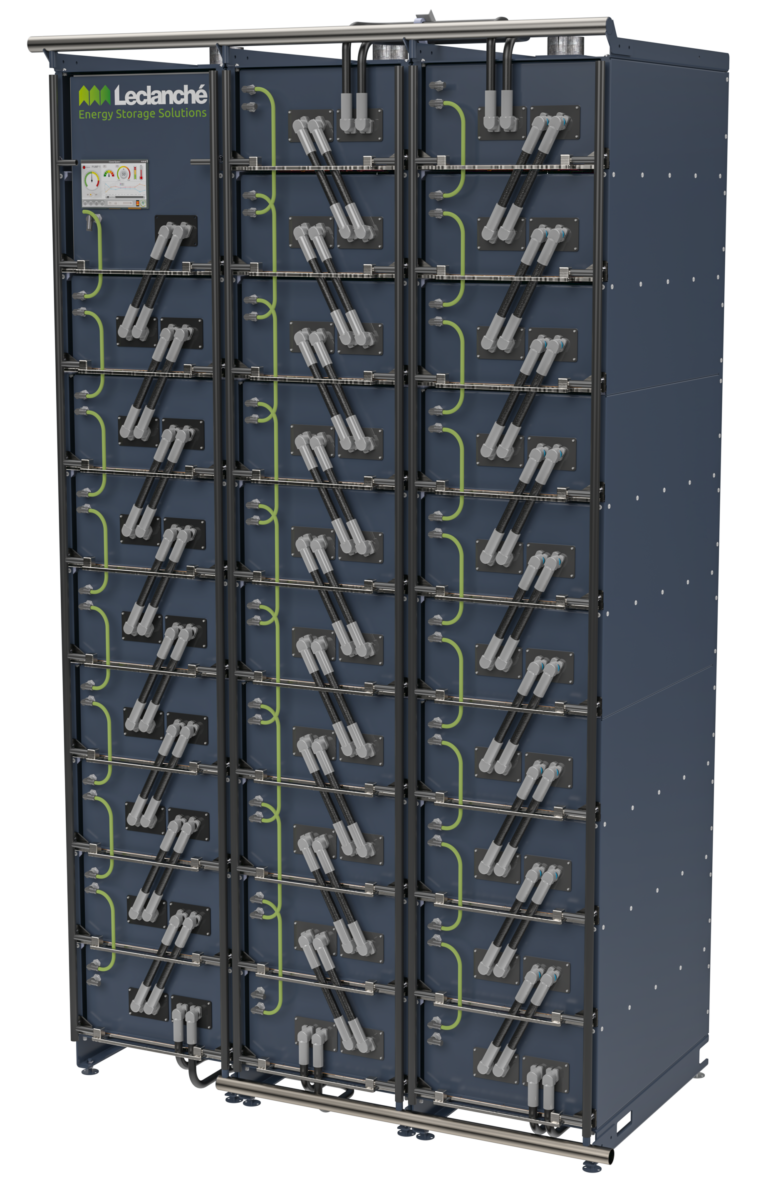Switzerland-based Leclanché, a leading energy storage solutions company and a major global provider of battery storage systems for maritime vessels, used the recent Electric & Hybrid Marine Expo North America in Houston, Texas, to debut its Navius MRS-3, a third-generation marine battery system.
The Navius MRS-3 is designed to support the needs of fully electric and hybrid marine vessel ship builders. The new system improves upon Leclanché’s award-winning MRS-2 – already powering a broad range of vessels in service around the world. It features significant improvements in battery energy density, modularity and safety, according to the company, which states it is the maritime industry’s most flexible and powerful vessel electrification system, offering the lowest carbon footprint.
The system, which begins shipping in 2023, has already been specified in several major design wins including Scandlines’ 10MWh PR24 zero-emission freight ferry, scheduled to be the world’s largest, fully electric powered, hybrid ferry.
The long list of key enhancements included in the Navius MRS-3 starts with the company’s proprietary, high-energy and best-in-class cycle life 65 Ah G/NMC cells fitted into its latest generation M3 Energy battery modules. Both are produced in-house at the company’s cell manufacturing facilities in Germany and automated, state-of-the-art module assembly line in Switzerland.
Battery string voltages of up to 1,200 V DC are available with up to 720A string continuous discharge current. Each 36-cell module provides 8.7kWh of energy. The modules are liquid-cooled which increases the lifespan of the system and permits up to 50% higher energy density compared to air-cooled systems.
The overall system design provides a distinct size and weight advantage versus competitive systems and is especially cost-effective for large-scale systems.



